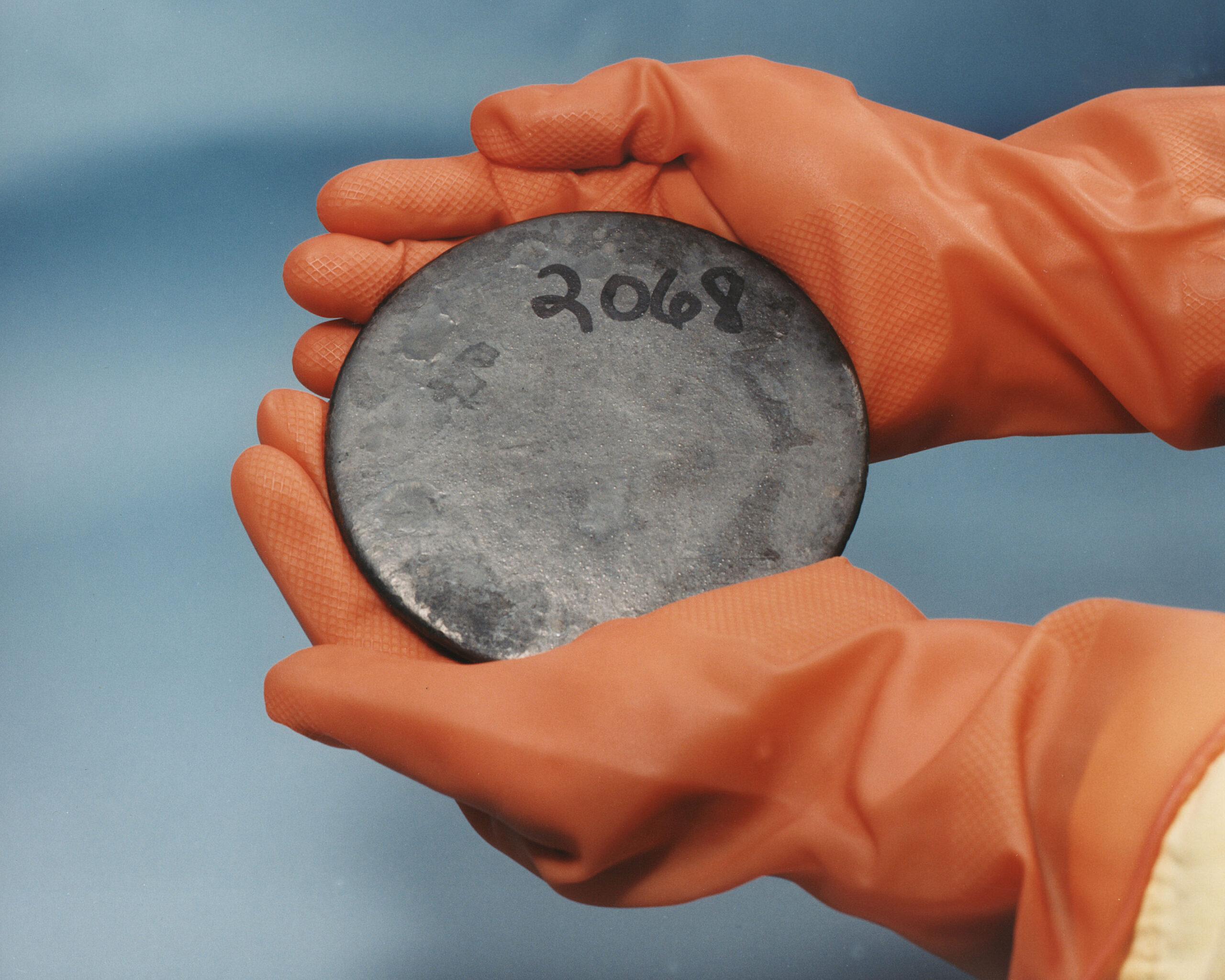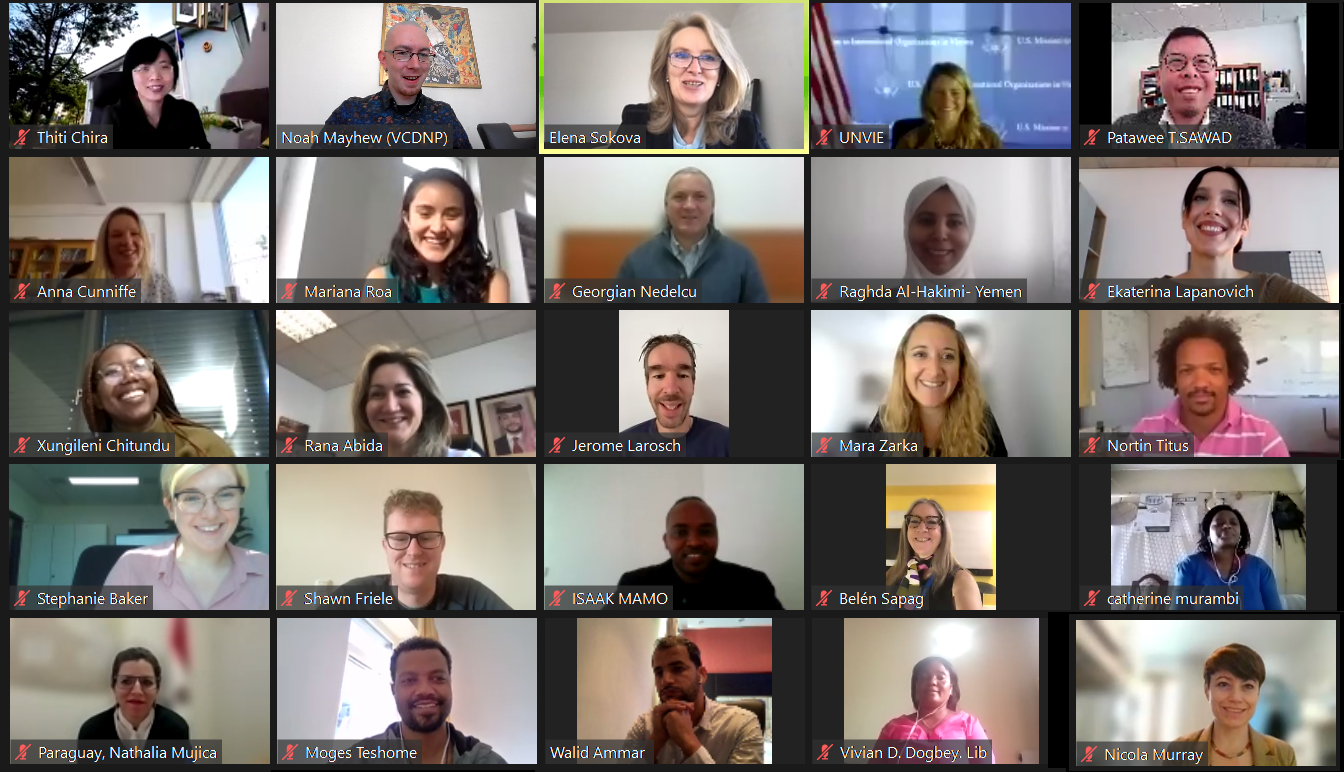
On 19 June 2019, the VCDNP held a public panel entitled “An Agenda to Strengthen Nuclear Security & Non-Proliferation by Reducing Risks from Fissile Materials”. The live-streamed event was moderated by VCDNP Executive Director Elena Sokova and featured four speakers: Dr. Jor Shan Choi (University of California at Berkley), Dr. Rajeswari Rajagopalan (Observer Research Foundation), Professor Sharon Squassoni (George Washington University) and Dr. Tatsujiro Suzuki (Nagasaki University).

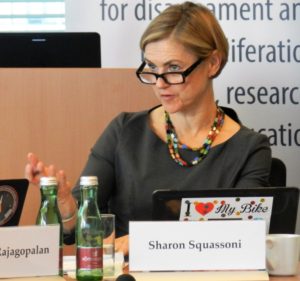
Ms. Squassoni started her presentation by outlining the major international trends that raise risks associated with fissile material, such as a dire state of nuclear arms control, the DPRK’s continuing challenge to non-proliferation and slow pace of disarmament, to name a few. Moreover, there are significant stocks of plutonium and fissile material accumulated in both military and civil sectors, which will only increase in view of the future nuclear energy plans and the fissile material production for weapons by the DPRK, India and Pakistan. Absence of movement on a Fissile Material Cut-Off Treaty also negatively affects both non-proliferation and nuclear security regimes.
Ms. Squassoni explained current mechanisms of reducing risks from fissile material, given the little leverage for restricting fuel cycle capabilities provided by the Treaty on the Non Proliferation of Nuclear Weapons and lack of focus on plutonium by Nuclear Security Summits (NSSs). She mentioned the Fissile Zero Futures project of 2016-18, which looked at norms existing in the areas of nuclear weapons, reducing highly enriched uranium in naval fuel and plutonium in civil use, and the Nuclear Transparency project of 2017-19, which promoted information exchange in South Asia and expansion of the Guidelines for the Management of Plutonium, published as INFCIRC/549.
Ms. Squassoni made a particular emphasis on the latter document, which aimed at: underscoring the commitment of each State to existing standards of security and safeguards; spurring strategic management of plutonium; improving transparency; and enhancing controls on international transfers. While the Guidelines have been a useful multilateral counterpoint to unilateral and bilateral actions, its voluntary nature is both its strength and weakness, leading to partial fulfilment of commitments. For example, States may have to face difficult trade-offs when taking a stance on reporting, such as confidence-building versus accuracy, transparency versus secrecy and regional rivalries versus global norms.
According to Ms. Squassoni, the Guidelines may be reinvigorated by increasing amount and precision of reported data and expanding membership to this reporting scheme to other countries that hold military and civilian plutonium stockpiles, i.e. the DPRK, India, Israel and Pakistan.
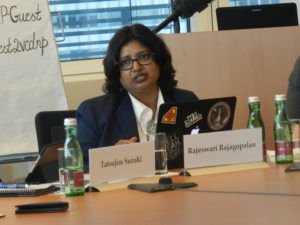
Dr. Rajagopalan spoke about nuclear security in both Indian and global contexts. She outlined five key principles that drive the Indian approach on nuclear security: governance, institutions, security practice and culture, technology and international cooperation. She emphasised that, even though there exist a number of technical solutions to guarantee and enhance the nuclear security regime, nuclear security culture is of particular importance in India and should also be given priority internationally.
Among some of the major highlights of the security practices in India, Dr. Rajagopalan mentioned defence in depth and design basis threat. Personnel reliability programme is another key component, particularly significant from an insider threat perspective. It involves thorough background vetting of contractors and new staff members and periodic verification of current employees. However, this may not hold true for sub-contractors who are temporary workers at Indian facilities, which poses challenge in terms of nuclear security.
Dr. Rajagopalan described two additional areas where India might score better. One is the effective independence of the regulatory authority from the governmental body responsible for atomic energy. Another one is the need for India to carry out more communication activities explaining measures India undertakes to guarantee the robustness of its national nuclear security regime.
In terms of the international context, Dr. Rajagopalan provided several recommendations. Firstly, she emphasised the need to categorise global standards and regulations covering both civilian and military nuclear materials through a comprehensive international instrument, for example, a convention. Secondly, she advocated for an inclusive process of developing an effective nuclear security regime, which would ensure greater acceptability and compliance. Thirdly, since nuclear security is a global issue, a global approach should be preferred to the regional one. Regional centres of excellence, such as Nuclear Energy Partnership in India and Pakistan’s Centre of Excellence for Nuclear Security, are nevertheless instrumental for launching global conversations and hosting training missions and simulation exercises. Expanding the stakeholder base is also vital. Dr. Rajeswari Rajagopalan regarded the NSSs as a successful initiative because it went beyond the States and established a wider network of stakeholders including the NGO/ expert community and industry. Lastly, she urged for an enhanced support for the International Atomic Energy Agency (IAEA), both in terms of human resources and funding, so that it could play a more effective role in ensuring nuclear security.
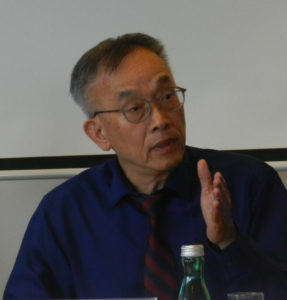
Dr. Choi’s presentation focussed on how various countries address risks associated with plutonium stockpiles. He identified six approaches, the first of which being so-called “soft landing”. This approach consists of not using MOX and is taken in Belgium, Switzerland and Germany. In case of the latter, this approach is also a part of an overall decision to pursue the nuclear power phase-out by 2023.
The second approach, or “prolonged landing”, was taken by Japan with regards to Rokkasho Reprocessing Plant and the MOX-fuel fabrication plant J-MOX. Taking into account that there are no new nuclear power plants that could use MOX fuel in Japan, operating the two facilities on partial capacity would be very expensive and operating them at full capacity would lead to further accumulation of plutonium, the stock of which was as high as 47 tonnes in 2016.
Dr. Choi described as “alternate landing” the approach of the United States, which cancelled its plan to use 34 tonnes of weapons-grade plutonium to produce MOX fuel for five reactors. Instead, it opted for a diluting plutonium and disposing it in a deep geological repository.
A “diverging cruise control” approach, taken by France, aims at balancing plutonium stock. Plutonium reprocessed in La Hague is then fully used in 13 reactors, thus ensuring stable level of plutonium stock. France, together with the UK, was also cited by Dr. Jor Shan Choi in a “no landing/cooperative landing” approach. Since the UK has no reactor to utilise its 110 tonnes of plutonium, it might prefer sending it to France’s MOX-fuel fabrication plant at Melox to be further used in French reactors. Electricity thus produced is to be supplied to the UK while the UK covers the costs and takes back spent MOX-fuel.
The last approach is “awaiting take-off”, which implies separating plutonium and using MOX fuel in fast neutron reactors. Dr. Choi indicated China and Russia in this respect and also tentatively included South Korea in this group in view of its pyroprocessing activities and plans to produce metal fuel for France.
Among other States, Dr. Choi mentioned the DPRK, India, Israel and Pakistan and suggested some transparency measures with regards to their plutonium stock. It would be useful for the global nuclear security regime if the four countries joined the INFCIRC/549 and declared its inventory of “civil” or “excess” plutonium.
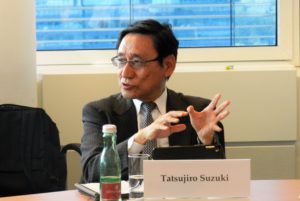
Dr. Suzuki presented proposals concerning international management of plutonium, which had been prepared by the Working Group on New Initiatives for Nuclear Energy and Nuclear Non-Proliferation and delivered to the Japanese Government in May 2019. The first recommendation suggested putting Japanese “excess” plutonium under IAEA custody. “Excess” plutonium would mean stocks of plutonium exceeding “reasonable working stocks” that should be defined by the Japanese Government according to the fuel cycle situation. Japan will have right to use this excess plutonium after an assessment of an expert group set up jointly by Japan and the IAEA. The Working Group additionally recommended that Japan should call for other States holding plutonium stocks to join the international storage.
Secondly, it was recommended that INFCIRC/549 be strengthened along the lines that States should declare that existing plutonium stocks will be reduced and should reprocess spent fuel only in the amounts for which demand is clear. Next recommendation is to establish an international forum on disposal of plutonium stocks, which would include the IAEA and five holders of large stocks of separated plutonium, namely France, Japan, Russia, the UK and the US. Each one of those countries would announce reduction plans and identify areas for mutual cooperation, such as, for example, some States taking custody of other States’ plutonium for a fee and disposing of it.
The last two recommendations included: giving priority to dry storage for spent fuel management and having a third party agency assess the options for the nuclear fuel cycle, and Japan playing a leading role in globally promoting new international norms with regards to plutonium.
The presentations were followed by a lively discussion. While the participants agreed that consolidation of plutonium stocks in fewer facilities might have positive impact on nuclear security, a better approach is to arrange a flow of plutonium so that reprocessing levels correspond with the material consumption. Replying to the question about the role of public opinion, the speakers noted that States in general, and their nuclear power authorities and regulators in particular, had an obligation to explain to the public the importance of nuclear security, assume responsibility for its implementation and abstain from blaming external forces for faults committed.
